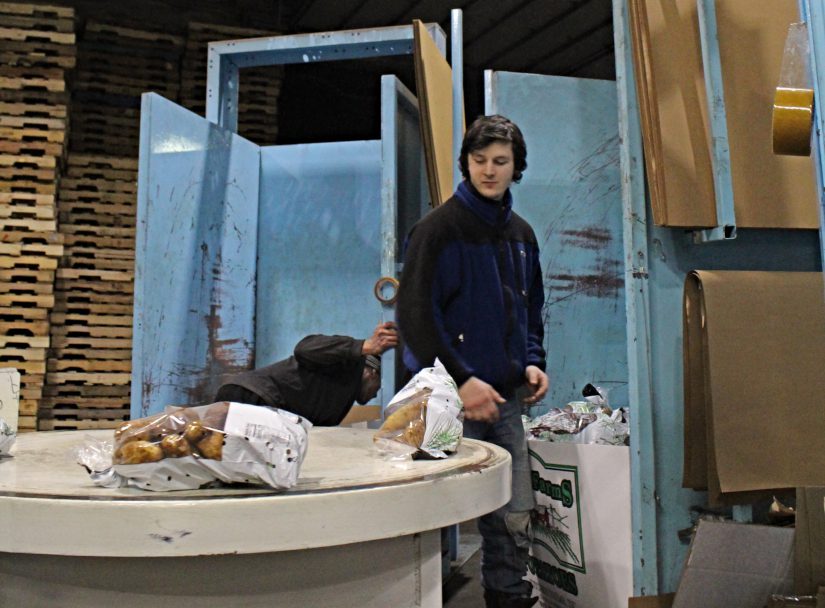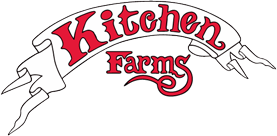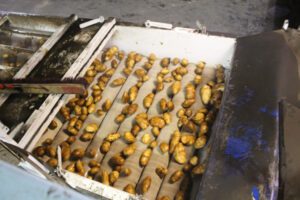The perfect potato breed is many things: reliable, resistant, high-yielding and, of course, marketable. Also add elusive. Like his potato-growing colleagues, Don Kitchen has yet to find the perfect potato, but that’s not for a lack of trying. Kitchen Farms near Elmira, Michigan, in the state’s northern lower peninsula, grows anywhere from 18 to 28 varieties in a given year.
While yet to find the flawless cultivar, Kitchen and his ancestors have done pretty darn well with what’s available.
“The reason we grow so many varieties is because we’re always looking for a better one, or the best one,” Don Kitchen said. “A lot of these new varieties that we try are small plots, maybe a half acre or maybe two acres. If we find a plot that we think has enough potential, then we’ll plant 15 or 20 acres the next year. “We’re always looking for something better.”
Logger-turned-farmer
“My great-grandfather was a logger,” Don Kitchen said. “He bought 80 and, to the best of my understanding, it started off like anything back then.
They had cows, chickens and just kind of lived and raised and did their thing. The ’60s turned to growing more potatoes. … Then in the ‘80s is when it really took off.” The 1980s is also when Kitchen Farms began expanding the varieties in its fields. Until the latter half of the decade, they grew almost exclusively Superior whites.
Today, the farm grows reds, whites, russets and a growing number of yellows. “The late ’80s, early ’90s is we started doing russets,” Kitchen said. “The yellows are a pretty new thing to us. I guess relatively overall, there are a lot of new yellow varieties today.”
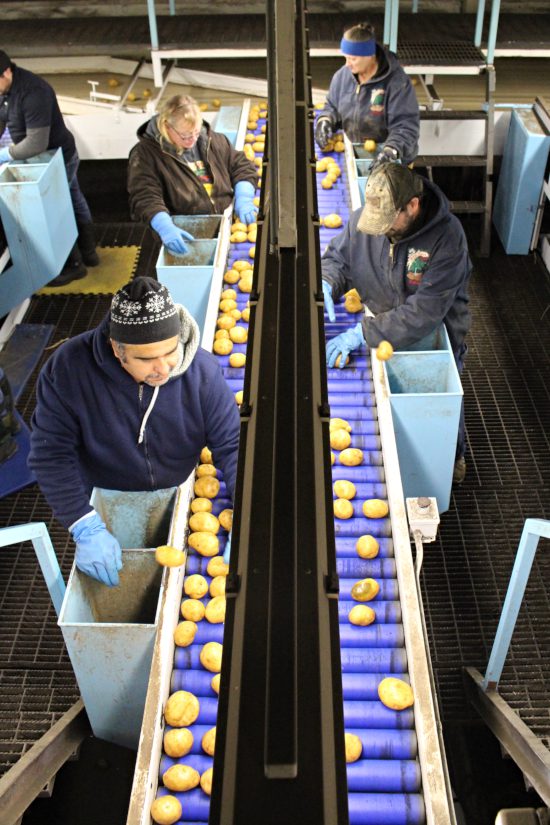
The majority of Kitchen potatoes are sold to other growers for the purpose of repacking, although Kitchen said he does have a few accounts with retailers. Most of Kitchen’s buyers are in the Midwest and Mid-Atlantic states, but he does have customers in the Deep South as well.
RELATED: See more photos of Kitchen Farms
“I package whatever — 5-pound, 10-pound, 3-pound bags, 50-pound carton — whatever any consumer would want, I can pack,” said Kitchen, who does offer direct-to-consumer sales at the farm, but they make up a very small percentage of overall business.
Steady growth
While the farm encompasses 5,000 acres, only about 3,900 of them are irrigated. Kitchen grows potatoes in three-year rotations, with alfalfa planted during the off years. Each year, Kitchen dedicates approximately 1,250 acres to potatoes.
“We plant in May. We harvest in September and October and the first of November, we start packing,” Kitchen said. “We’re normally pretty steady in November, December, January and then February. March, April and May is generally when we get extremely busy.”
The operation employs 42 people most of the year, including Don and wife Sarah, who works in an administrative role. The couple have two teenage children, Dylan, 17, and Hailey, 14. (Non-paid staffers include the couple’s three dogs, including a German shepherd named Spud.)
The full-time staff includes five drivers for Kitchen’s five trucks, two maintenance specialists and the rest make up the packing and field crews. There is a layoff period during the summer following planting when the staff shrinks to about half its usual size.
Kitchen said growing fewer varieties, like the farm did 30 years ago, would be simpler, but times have changed and the diversification has been a means to meet the growing diversification of wants from consumers. Efficiency, too, has improved.

“Our business plan, as a whole, has changed. I have a lot more customers than I used to have,” Kitchen said. “I do have higher volume because we have higher yields. My yields today are a lot higher than they were 25 years ago. We’re broader spectrum now.”
Kitchen is a big fan of studying agronomics and overall soil health practices. His father, Bill, once said the alfalfa was a major factor in his soil’s efficiency.
“Our yields are tremendous,” Bill Kitchen told the Traverse City Record-Eagle in 2014. “That’s because of our alfalfa rotation.”
Labor and regulations
Having a staff of more than 40 and not being able to offer year-round employment to nearly half makes labor among Kitchen’s biggest ongoing concerns. “Don’t get me wrong, I have some very good people,” Kitchen said. He added that trucking issues seem to have calmed down “the past six months” following the initial implementation of the electronic logging device (ELD) law in 2017.
Kitchen’s other biggest headache: regulations. “Doesn’t matter if it’s an underground storage tank or pesticides that I’m putting on my fields, regulations are probably the toughest thing for me to keep up on,” Kitchen said. “The (Michigan Potato Industry Commission) does a great job keeping us informed, but it’s always something.”
Like other growers, keeping up with regulations is probably a never-ending process, much like his quest for the perfect potato variety. Part of him does enjoy the experimentation of new varieties. Kitchen gets a good look at them each year, as Michigan State University’s Breeding and Genetics program conducts trials in his fields.
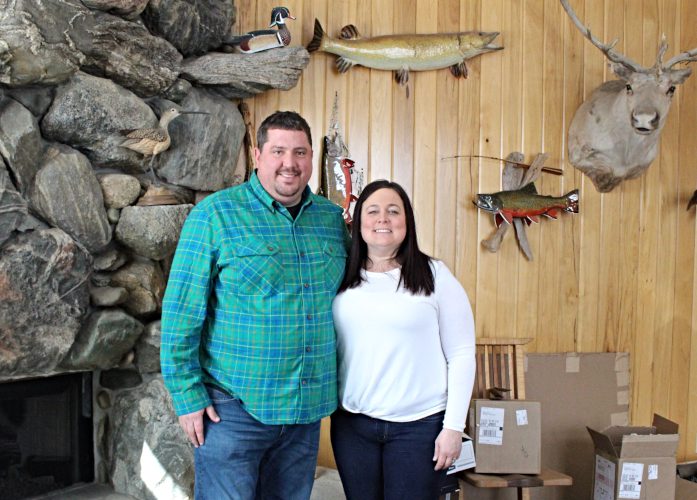
“My ultimate goal would be to get it down to a half dozen,” Kitchen said. “One, it’s easier; but two, I hope it’s the one that really works, one that I can fine tune and tweak the agronomy and grow it better.
“I’d like to nail it down to a few good ones, but I do like to try new varieties.”
Kitchen grew up loving farming, but there was a time during his teen years when he wasn’t so sure it was in his future. He’s glad it panned out, though.
“I really love seeing the potato plants growing in July and August and alfalfa being cut, the irrigation system going and tractors in the field. I love that aspect of it,” he said. “In the winter, I love to talk to my customers, I love to talk to the people I sell to.
“I have a lot of good customers. Really, we’re partners.”
